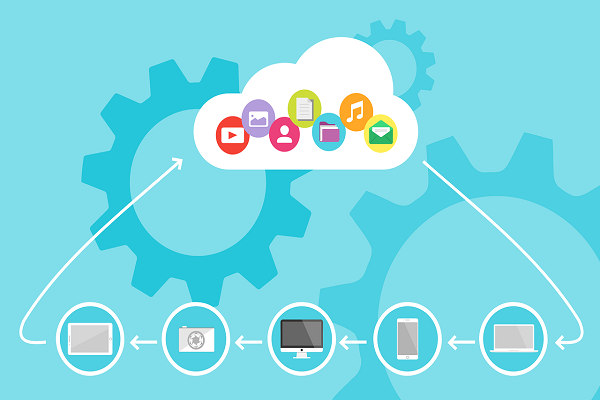For small businesses striving to stay competitive and efficient, adopting cloud computing solutions can be a game-changer. Cloud computing is no longer a luxury reserved for large enterprises; it has become an accessible and cost-effective tool for businesses of all sizes. From improving collaboration to reducing operational costs, cloud solutions offer a wide array of benefits that can help small businesses streamline their operations and grow sustainably.
In this article, we will explore how small businesses can leverage cloud computing to enhance efficiency, reduce overhead, and scale effortlessly.
What Is Cloud Computing?
Cloud computing refers to the delivery of various services—such as storage, computing power, and software—over the internet, allowing businesses to access resources without the need for on-site infrastructure. Instead of investing in physical servers or software licenses, businesses can rent computing power, storage, and software as needed from cloud providers.
Key Benefits of Cloud Computing for Small Businesses
Cloud computing offers numerous advantages to small businesses. Here are the most important benefits:
1. Cost Savings
One of the most significant advantages of cloud computing is the cost savings. Small businesses no longer need to invest in expensive servers, data centers, or extensive IT infrastructure. Cloud computing allows businesses to pay for only the resources they use, eliminating the need for large upfront investments.
Cloud providers also handle maintenance and updates, freeing businesses from the expenses associated with maintaining hardware and hiring dedicated IT staff. This makes cloud solutions ideal for businesses looking to manage tight budgets while still accessing cutting-edge technology.
2. Scalability
As small businesses grow, their IT needs change. Cloud computing offers the flexibility to scale resources up or down as needed, without the hassle of purchasing new hardware or software. This scalability allows small businesses to handle increased demand during peak times without over-investing in resources during slower periods.
For instance, an eCommerce business experiencing a surge in traffic during a holiday season can quickly scale up its cloud resources to handle the influx of customers, then scale back down when traffic returns to normal levels.
3. Improved Collaboration
Cloud computing fosters collaboration by allowing employees to access documents and software from anywhere with an internet connection. This is especially beneficial for businesses with remote or hybrid teams. Cloud-based collaboration tools such as Google Workspace and Microsoft 365 enable team members to work on projects in real-time, improving productivity and efficiency.
Additionally, with files stored in the cloud, employees can easily share information with clients and team members, ensuring that everyone stays on the same page, no matter where they are located.
4. Enhanced Security
Security is a top concern for small businesses, and cloud computing can provide enhanced protection against data breaches and cyberattacks. Cloud service providers invest heavily in robust security measures, including data encryption, multi-factor authentication, and regular security audits.
Moreover, cloud solutions offer automatic backups and disaster recovery options, ensuring that businesses can recover their data quickly in case of an emergency. This level of security often surpasses what small businesses can achieve with on-site IT solutions.
5. Increased Efficiency and Flexibility
With cloud computing, businesses can access software, platforms, and services on-demand, enabling them to streamline their operations. Many cloud-based applications are designed with ease of use and integration in mind, allowing businesses to customize their workflows and access the tools they need when they need them.
The flexibility of the cloud also enables small businesses to experiment with new tools and technologies without the need for a significant upfront investment. This allows them to innovate and stay competitive in a fast-changing marketplace.
6. Reduced Environmental Impact
For businesses looking to reduce their carbon footprint, cloud computing offers a more environmentally friendly solution compared to traditional IT infrastructure. Cloud service providers use energy-efficient data centers, often powered by renewable energy, which reduces the overall energy consumption and environmental impact of IT operations.
By switching to cloud-based services, small businesses can contribute to sustainability efforts while simultaneously benefiting from increased efficiency.
Cloud Computing Solutions for Small Businesses
There are various types of cloud computing services that small businesses can adopt, each offering specific advantages based on the company’s needs. Here are some of the most popular cloud computing solutions:
1. Software as a Service (SaaS)
SaaS delivers software applications over the internet, eliminating the need for businesses to install and maintain software on their computers. Popular SaaS solutions include customer relationship management (CRM) systems, accounting software, and productivity tools like Google Workspace and Microsoft 365.
With SaaS, businesses can access software on a subscription basis, enabling them to use advanced applications without the need for costly licenses or updates.
2. Infrastructure as a Service (IaaS)
IaaS provides businesses with computing resources such as servers, storage, and networking over the internet. This allows small businesses to avoid the cost and complexity of managing physical hardware. IaaS providers like Amazon Web Services (AWS) and Microsoft Azure offer businesses the ability to rent virtual machines, storage, and other resources on a pay-as-you-go basis.
3. Platform as a Service (PaaS)
PaaS offers businesses a platform for developing, running, and managing applications without the need to build and maintain the underlying infrastructure. This is especially useful for small businesses with development teams looking to create custom applications without worrying about servers, operating systems, or storage.
4. Backup and Disaster Recovery Solutions
Cloud-based backup and disaster recovery solutions provide an easy way for businesses to store their data off-site, ensuring it can be recovered quickly in the event of a disaster or data breach. Many cloud providers offer automated backups, allowing businesses to focus on their core operations without worrying about data loss.
Overcoming Potential Challenges with Cloud Computing
While cloud computing offers many benefits, small businesses should be aware of potential challenges, such as:
1. Internet Dependence
Cloud computing relies on a stable internet connection. A poor or unreliable connection can lead to reduced performance and productivity, so it’s essential for businesses to invest in high-speed internet.
2. Data Privacy Concerns
Some businesses may be concerned about storing sensitive data in the cloud. It’s important to choose reputable cloud providers that adhere to strict privacy and data protection regulations. Research providers carefully and ensure they offer robust security features.
Harnessing the Power of Cloud Computing for Your Business
Cloud computing is a powerful tool for small businesses looking to enhance efficiency, reduce costs, and scale seamlessly. With the right strategy and provider, cloud solutions can provide a competitive edge in today’s fast-paced marketplace. Whether you’re just starting out or looking to grow, adopting cloud computing can transform your business operations and provide the flexibility and innovation needed to thrive.
For personalized advice on finding the right cloud solutions for your small business, contact our team today.

